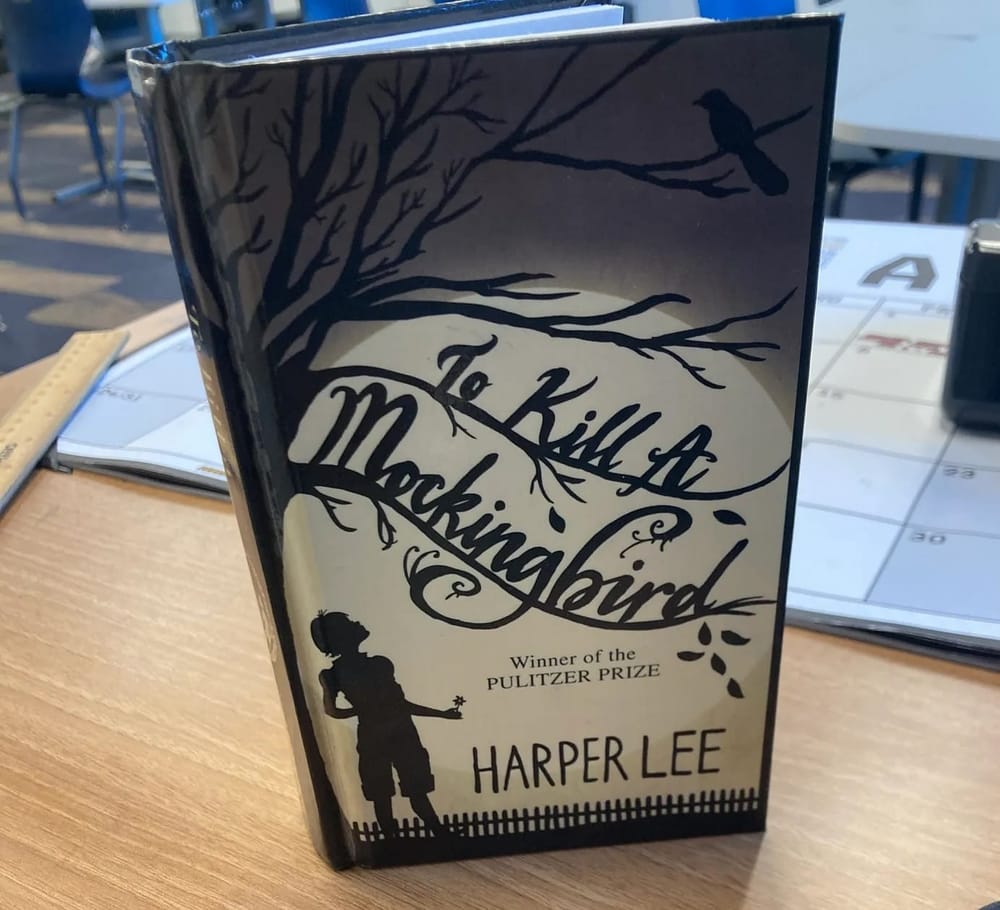Matt Walsh once made a documentary called Am I a Racist?, in which he pretends to be a DEI trainee to “prove” racism doesn’t exist — or something equally absurd. I haven’t watched it, but the premise tells you all you need to know about the man. This is the same guy who made What Is a Woman?, who mocks men for remembering Valentine’s Day early, and who thrives on bad-faith outrage. That’s Matt Walsh.
So when one of his videos popped up on my feed, I was ready to scroll past — until I saw the topic: To Kill a Mockingbird, a novel I’ve been teaching for over a decade. Fine, Matt, you got me to click. How bad could it be? Well, given the track record, exactly that bad.
Apparently, this whole thing began after Trump ordered a strike on a Venezuelan speedboat suspected of carrying drugs, killing eleven people. Many Americans called it a war crime — especially since the boat appeared to be turning back and there’s no proof it carried drugs. The bigger issue is due process: Trump’s increasing willingness to decide who lives and dies.
In 2016, he famously said, “I could stand in the middle of Fifth Avenue and shoot somebody, and I wouldn’t lose any voters.”
He wasn’t joking. Now, he has more power — and I believe him.
Even some conservatives are uneasy. Rand Paul tweeted:
“JD ‘I don’t give a shit’ Vance says killing people he accuses of a crime is the ‘highest and best use of the military.’ Did he ever read To Kill a Mockingbird? Did he ever wonder what might happen if the accused were executed without trial or representation?”
It’s a clumsy comparison, but at least Paul tried. (Convincing JD Vance with a book by a woman? Bold strategy, Senator.) Still, the tweet was enough to trigger a 20-minute video rant from Matt Walsh about Mockingbird.
Walsh starts by dismissing To Kill a Mockingbird as “fiction for children,” as if that makes its themes irrelevant. This is rich coming from a man who treats Trump’s every word like scripture.
Yes, the novel is loosely based on Harper Lee’s life, but its events are hardly implausible. Tom Robinson, a Black man falsely accused of raping a white woman, is convicted and killed — a story less extreme than countless real ones. Emmett Till’s murder was worse. Yet somehow Mockingbird is too far-fetched?
Walsh also whines that white characters are always the villains in “books about race.” That line alone reveals his ignorance. There are plenty of stories with Black antagonists — most written by Black authors — but they’re often the first to get banned.
What makes Mockingbird endure isn’t simplicity; it’s nuance. Even the racists are rendered as products of a system. Atticus Finch doesn’t excuse them, but he sees them clearly:
“A mob’s always made up of people, no matter what… Every mob in every little Southern town is always made up of people you know.”
Atticus finds humanity in the hateful — something Matt Walsh can’t comprehend from a Wikipedia skim.
Walsh claims Mockingbird is “universally loved” in schools, proof of liberal brainwashing. That’s false. The novel has been banned repeatedly, most recently in 2022. Parents complain about language, religion, or its portrayal of race — though “talking about racism at all” is usually the real issue.
America’s comfort level with history has always been selective. We can mention slavery, but only in economic terms. We can celebrate MLK as long as we skip the parts about redistribution. We can hold an annual Black history assembly — unless the speaker goes off-script. (Ask me how I know.)
Still, Mockingbird persists because it teaches empathy. As Atticus says:
“You never really understand a person until you consider things from his point of view — until you climb in his skin and walk around in it.”
That lesson — empathy as radical practice — is what Walsh brands as “propaganda.” Apparently, caring about others is now controversial.
When Walsh turns to Go Set a Watchman, Harper Lee’s posthumous “sequel,” he argues it ruins the original. He’s half-right: Watchman is a mess. It was Lee’s first draft, never meant for publication, and it shows. But the mere existence of a bad first draft doesn’t invalidate Mockingbird, any more than Halloween 6 invalidates the original Halloween.
There’s irony, though: Watchman actually could have been a fascinating commentary if it were written in 2015 — showing Atticus as an aging man, supportive of justice in theory but opposed to equality in practice. The hero of one era becomes the obstacle of the next. That evolution — or lack of it — says more about America than Walsh ever could.
Now, I’ll admit: To Kill a Mockingbird isn’t perfect. It’s a white story about Black pain, written for white readers. Calpurnia and Tom Robinson are underdeveloped; Black voices get sidelined. And yet, I still fight to keep it in my curriculum — not because it’s flawless, but because it’s a bridge. It opens doors for conversations that books by Black authors can later kick down.
What I won’t tolerate is Walsh pretending the book is “racial propaganda.” If teaching empathy, justice, and critical thinking qualifies as propaganda, then maybe the problem isn’t the curriculum — it’s the culture that fears compassion.
This post originally appeared on Medium and is edited and republished with author's permission. Read more of LG Ware's work on Medium.
